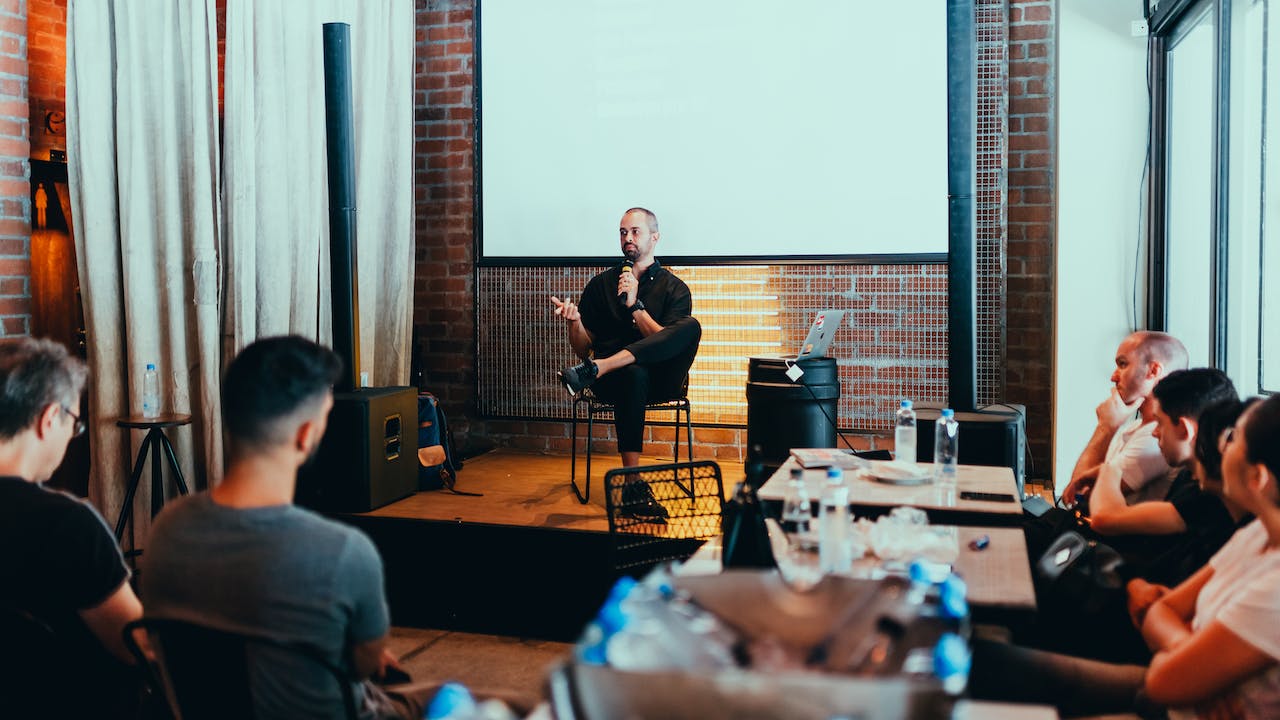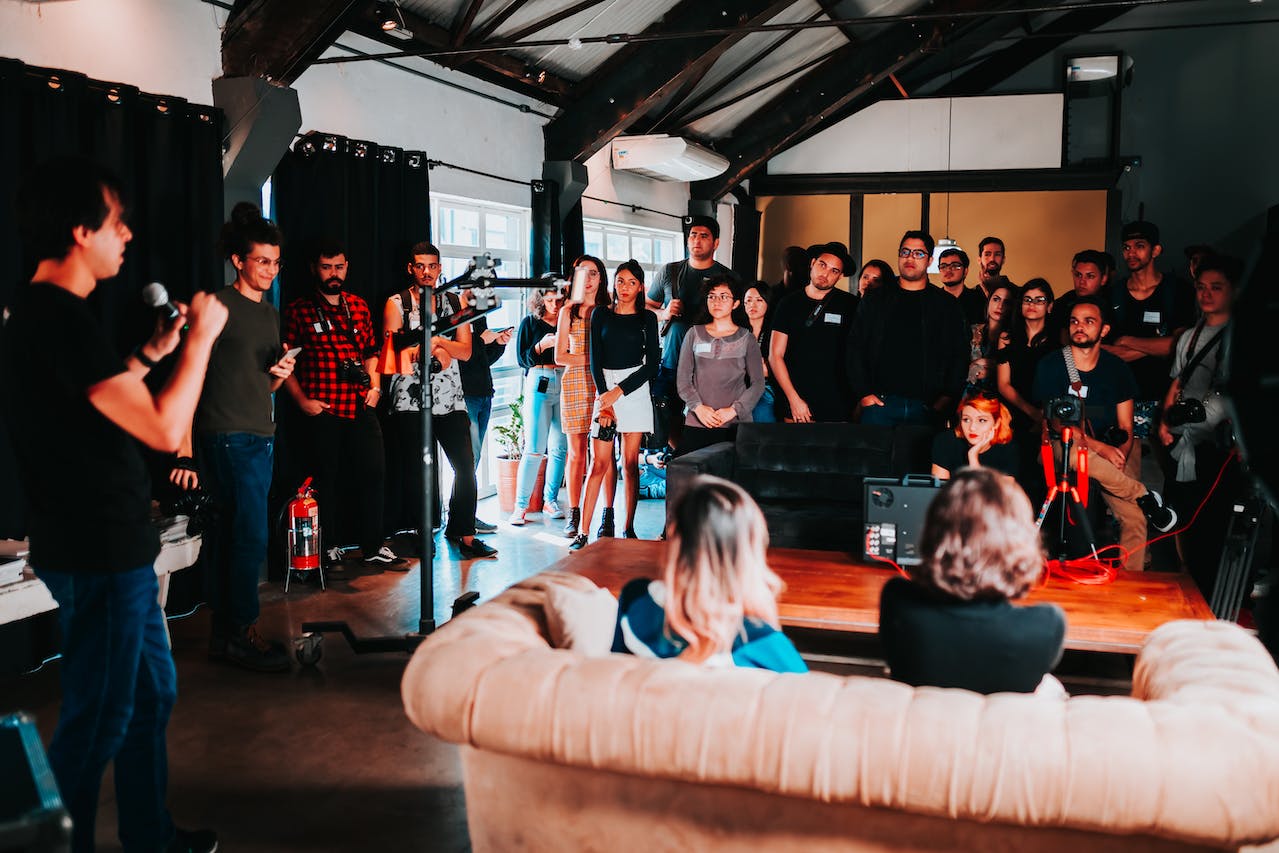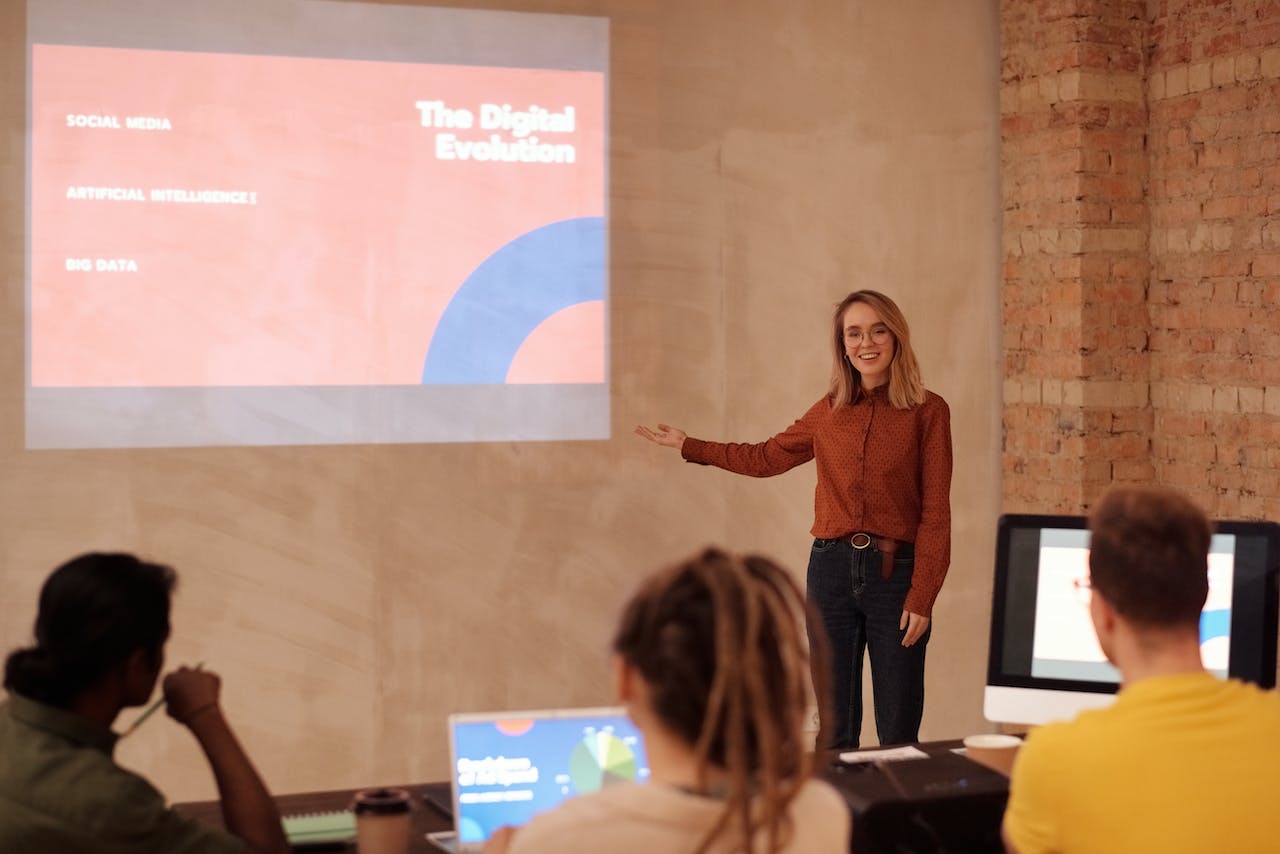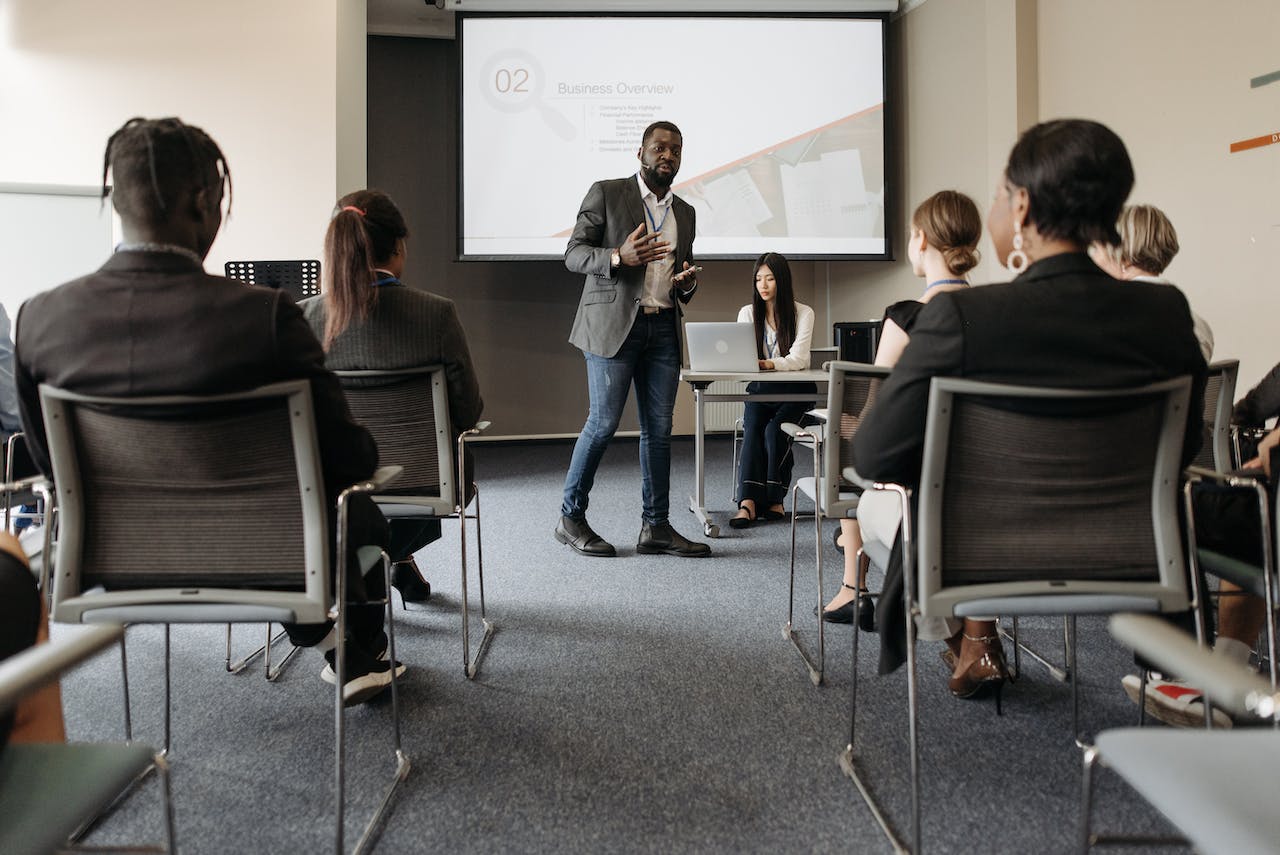
One of the most essential tools for producing unique experiences and establishing enduring relationships with audiences in marketing is the psychology of live event participation. This fascinating field explores how audiences are captivated and influenced by live events, using social dynamics and human emotions to inform effective marketing methods.
Marketers can create events that are not just entertaining but also resonate on a deeper, more personal level by looking at the psychological foundations of audience involvement. This will lead to more meaningful and successful marketing outcomes.
There is a tonne of unrealized potential in using live events to build strong relationships with your clients and prospects. Furthermore, one should appreciate the ability of this kind of brand interaction to increase company value. In this article, we will discuss the psychology of live event engagement in marketing.
What Is Audience Engagement?
The degree to which guests participate in your event, how they do so, and their level of satisfaction with the whole experience are all gauged by audience engagement. It's a complex idea that includes time spent on content, likes, shares, comments, and other audience involvement methods.
In order to build a feeling of community and belonging around a businessor piece of content, audience engagement entails having meaningful conversations and building connections with the audience.
Engaging an audience is essential for a number of reasons. Because engaged users are more likely to have a favorable relationship with the brand, it improves brand loyalty and trust.
Additionally, it offers insightful data about audience preferences and habits, enabling marketers to target their content and tactics better to match the demands and expectations of their target audience. Elevated levels of involvement have the potential to boost a brand's prominence, scope, and influence, eventually propelling its expansion and prosperity.
“„Event marketing statistics reveal that up to 93% of event marketers consider hosting events to be their foremost priority, with 57% categorizing it as a high priority. Additionally, around 40% of marketers plan to increase their spending on hosting events in the upcoming years.
How Do You Boost Event Engagement With Live Social Media?
Using social media to reach and interact with your audience is effective. There are several strategies to market and increase interest prior to the event when it comes to social media and event preparation.
However, there are more advantages to this well-liked social media platform. Social media at a live event may be a fantastic tool for interacting with both attendees and those who are unable to attend.
Hold A Social Media Contest With Fun Prizes
Holding contests is a fantastic approach to encourage people to interact with your business. Your firm may utilize social media as a platform for contests, whether you are organizing a company-wide event for employees or exhibiting at a trade fair. Participants can interact with your brand while entering the contest using their social media profiles.
For instance, you may offer trade show attendees the opportunity to win an Amazon gift card by encouraging them to like your Facebook page or to make comments about your business there. When it appears in their feed and is viewed by others, this not only encourages the person to interact with your business but also improves visibility.
For internal corporate events, encourage staff members to share a goofy photo from the photo booth using the company hashtag. The most inventive entry will receive a special prize.
Use Live Social Display Feeds To Show User-Generated Content.
Using social media feeds from your live event is another approach to keep your audience interested. You may come up with a unique hashtag and encourage others to use it when discussing your business.
Then, you may aggregate images and status updates from other social media platforms that contain that hashtag using a third-party live feed software and project the feed onto a projection screen.
Usually, these applications enable you to keep an eye on the feed and provide you with a window of time to remove any offensive or unnecessary postings. Using the projector feed on social media is a terrific method to start conversations about your business and encourage others to interact with it.
Filter Q&A Sessions Through Your Favorite Social Media Channel
Social media may be a great tool during speaking engagements to increase the effectiveness and efficiency of Q&A sessions. Speakers can answer questions from the crowd via a social media site like Twitter instead of circling the room with a microphone. To ask the speaker a question during Q&A, all attendees need to do is tweet the speaker with the question.
Mention in the opening of the presentation that questions would be answered via Twitter to streamline the process. In this manner, the audience may submit their queries as soon as they come to mind. After the lecture, the speaker or a moderator can sort through the questions. To let others know if their question has been answered, you can use a projector to show the live broadcast.
The Psychology Behind Live Events
The psychology behind live events taps into fundamental human behaviors and emotions, significantly impacting marketing strategies. Central to this is the innate human need for social interaction and community.
Live events create a sense of belonging, offering a platform for individuals to connect, share experiences, and feel part of a larger group. This communal aspect not only satisfies social needs but also amplifies the overall impact of the event, as shared experiences are often more intense and memorable.
Physical presence and immersion at live events also play a crucial role. Being physically present in a specific environment allows individuals to immerse themselves in the experience fully.
This immersion leads to heightened emotional responses and a deeper level of engagement. When attendees are entirely absorbed in an event, they are more likely to form a solid emotional connection with the content, message, or brand being presented. This level of engagement is difficult to replicate through other marketing channels.
Emotional connections fostered by live experiences are powerful. These events often create unique, memorable experiences that resonate on a personal level, leading to a deeper emotional bond with the brand.
This connection is not just about the immediate experience but also about the lasting impression that continues to influence consumer behavior and brand perception long after the event has concluded.
Live Event Marketing Strategies
Live event marketing is an evolving landscape, with audience engagement sitting at its core. Whether it's an in-person, virtual, or hybrid event, the success of these gatherings hinges on how well they can captivate and involve their attendees. Here are some strategies to enhance engagement at live events:
Build An Event Website For Live Event Marketing
One of the most reputable and formal forms of event promotion is an event website. You may have all the information prospective guests want in one location with a website. Additionally, you may greet visitors to your website with an event-specific landing page.
The majority of individuals can quickly learn how to use WordPress to create a website. As a company owner, you should set aside an evening (three to four hours) to construct a simple event website.
Contact Influencers
Reaching out to influencers comes next. Social media personalities with a large following are known as influencers; they are like walking billboards. Influencers have a sizable following, so you may use that to your advantage by inviting them or working together to reach a larger audience.
This is ideal for increasing brand recognition and expanding reach. Because you can select influencers who are targeting the people you wish to attract, it also works well for drawing in your target audience.
QR Codes For Live Event Marketing
Another helpful technique for live event promotion is QR codes. As was previously said, QR codes can lead users to a website or registration page. QR codes are rapid, simple, and widely applicable.
Place them near the counter or on the walls of the dining areas and restrooms if you own a bar or restaurant. Your QR codes will profit from being visible wherever your consumers go.
The reason QR codes are so great is because they allow for immediate action. Instead of only giving prospective guests the specifics of the live event, you might persuade them to scan a code. You may persuade individuals to register their interest or even sign up for email updates by having them scan codes.
Clearly Define The Ticketing Process
This one is crucial. A simple ticketing procedure should always be in place since you want your marketing to be helpful. It should be simple for prospective attendees to purchase tickets.
The simplest way to make it available from all marketing techniques is to copy and paste links to booking sites. Provide a discounted early bird registration scheme if you want to take things a step further.
Understanding Your Audience
The foundation of any successful event is a deep understanding of its attendees. Knowing their preferences, interests, and expectations allows event organizers to tailor the content and format of the event to meet the audience's needs. This can be achieved through pre-event surveys, social media interactions, or analyzing past event data.
Live Participation
For in-person events, it's crucial to observe how the audience reacts in real time. This includes monitoring their reactions, noting which discussions are most engaging, and tracking participation levels. For virtual or hybrid events, tools like live chats or polls can be instrumental in gauging engagement and adjusting content on the fly.
Showing Appreciation
Demonstrating gratitude towards attendees can significantly boost their engagement and overall experience. This could be through event swag, digital coupons, or unexpected freebies upon arrival. Such gestures create a positive atmosphere and can increase enthusiasm for the event.
Personalized Communication
Tailoring communications to your audience can make them feel valued and special. Personalized invitations, event updates, and thank you messages can enhance the attendee experience and foster a sense of belonging.
Interactive Elements
Incorporating interactive elements like live polls, Q&A sessions, and personalized schedules can keep attendees actively engaged. These tools not only make the event more dynamic but also provide valuable feedback and data for future events.
Post-Event Follow-Up
Engagement shouldn't end when the event does. Post-event follow-ups, such as surveys, thank you emails, and content recaps, help maintain the connection with attendees and can provide insights for improving future events.
High-Energy Entertainment
Starting the event with high-energy entertainment or icebreakers sets a lively tone. This approach can energize the audience and increase their engagement right from the beginning.
Social Media Engagement
Utilizing social media and event-specific hashtags can create a buzz around the event. Encouraging attendees to share their experiences on social media can amplify the event's reach and create a community feeling.
Pre-Event Surveys And Polls
Conducting surveys and polls before the event can provide valuable insights into what attendees are most interested in. This information can be used to tailor the event content to meet their expectations better.
Live Streaming
For hybrid or virtual events, live streaming is essential. It allows for a broader audience reach and can include remote attendees in the experience. Ensuring high-quality streaming and interactive features for online participants is critical.
Future Trends In Event Marketing
Future developments in event marketing should be highly anticipated for their excitement and inventiveness. The ongoing changes in customer tastes and technological advancements will shape future developments in event marketing. Three crucial areas to be aware of are as follows:
Future Trends In Event Technology
Event marketers will include more immersive and interactive components in their events as technology develops at a rapid rate. Artificial intelligence, augmented reality, and virtual reality will all be used often to improve the experiences of attendees.
With the help of these technologies, event planners will be able to design distinctive, customized experiences that will increase event engagement and memorability.
The Rise Of Experiential Marketing
People seek genuine and meaningful experiences in a world that is becoming more and more digital. Event planners will concentrate on developing immersive activities that establish a stronger connection with participants.
Interactive exhibitions, live demonstrations, or practical workshops are a few examples of this. The aim is to leave a lasting impression by fostering an emotional bond between the brand and the guest.
Personalization And Customization
Generic experiences are no longer acceptable to attendees. They are looking for events that suit their tastes and interests. In order to better understand their target audience and provide individualized content and experiences, event marketers will make use of data and analytics. Examples of this may include customized networking opportunities, suggestions, or event agendas.
Importance Of The Psychology Of Live Event Engagement
Understanding the psychology of live event engagement in marketing is crucial because it allows marketers to create more effective and memorable experiences for their audience.
By leveraging psychological principles and cognitive biases, marketers can influence audience perception, behavioral triggers, and decision-making, ultimately leading to increased engagement and desired outcomes.
Some key reasons why understanding the psychology of live event engagement is essential include;
- Influencing audience perception - Psychological effects like the anchoring effect shape how attendees perceive an event's value, allowing marketers to create a positive impression and increase the likelihood of engagement.
- Creating memorable experiences- By tapping into inherent human tendencies such as loss aversion, the anchoring effect, social proof, the scarcity principle, confirmation bias, and the Zeigarnik effect, event marketers can shape perceptions and create memorable experiences that leave a lasting impression on attendees.
- Driving emotional connections - Experiential marketing aims to create an emotional connection with consumers, as emotions play an influential role in shaping our behavior and decision-making. A positive emotional experience with a brand increases the likelihood of remembrance, sharing, and loyalty.
- Leveraging storytelling- Humans are hardwired to respond to stories, and marketers can use storytelling in experiential marketing to craft narratives that resonate with their target audience, deepening engagement and creating memorable experiences.
- Addressing information gaps - Understanding what moves people helps marketers host more engaging events, whether it's making things more accessible for people (law of least effort) or leveraging testimonials to drive registrations (social proof)
Frequently Asked Question
How Does Audience Engagement Impact Brand Loyalty And Trust?
Engaged users are more likely to have a favorable relationship with the brand, enhancing loyalty and trust.
What Role Does Social Media Play In Live Event Engagement?
Social media is used to interact with attendees, increase event visibility, and encourage audience participation.
What Is The Significance Of Emotional Connections In Live Events?
Emotional connections lead to deeper engagement and a lasting impression, influencing consumer behavior and brand perception.
Final Thoughts
The psychology of live event engagement in marketing is pivotal for crafting unique, memorable experiences that forge lasting connections with audiences. By understanding and tapping into human emotions and social dynamics, marketers can elevate events beyond mere entertainment, creating profoundly resonant and personally meaningful experiences.
This approach not only enhances audience satisfaction but also fosters brand loyalty and trust. Key strategies include understanding audience preferences, incorporating interactive elements, leveraging social media, and ensuring effective post-event engagement.
As technology and personalization trends evolve, they will further shape the future of event marketing. Ultimately, harnessing the psychological aspects of live events is a powerful tool in a marketer's arsenal, offering significant potential to strengthen brand relationships and value.



